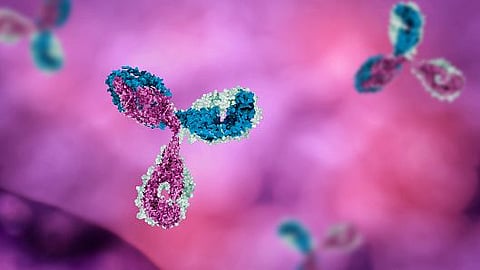Previous Southampton research has shown that a specific type of antibody called IgG2 is uniquely suited as a template for pharmaceutical intervention, since it is more active than other antibody types. However, the reason why it is more active had not been determined.
What was known, however, is that the structure between the antibody arms, the so called hinges, changes over time.
This latest research harnesses this property of the hinge and explains how it works: the researchers call this process 'disulfide-switching'.
In their study, the Southampton team analyzed the effect of modifying the hinge and used a combination of biological activity assays, structural biology, and computational chemistry to study how disulfide switching alters antibody structure and activity.


